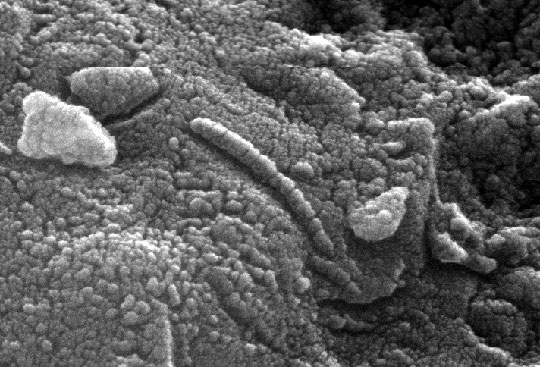Scientists at the University of Aberdeen, Glasgow University and the University of Scotland Environmental Research Center have discovered a living micro-fossil about 1.2 billion years ago today in a block of lava in Scotland.

Bacterial fossils. (Internet artwork)
The finding shows that the level of oxygen on Earth meets the evolutionary needs of mankind, which could be about 1.2 billion years ago, 400 million years earlier than scientists predicted. before.
This finding has important implications for the scientific community to re-explain the atmosphere and the timetable for the transformation of life.
Scientists conducted chemical composition analysis for ancient lava blocks discovered in the North West Scottish Highlands region, about 1.2 billion years ago, a strain of bacteria that once appeared in the This lava block.
Moreover, these bacteria are already conducting complex chemical reactions. This suggests that the oxygen content in the environment at that time was relatively high.
According to scientists, the results of geological analysis show that the concentration of oxygen in the atmosphere will increase to the necessary level to help complex organisms like humans can sustain life.
Scientists say it is necessary to continue the study to explain more specifically the evolutionary timetable of increasingly complex life as well as the evaluation of the chain reaction generated by the above findings.
 Discovered an ancient centipede fossil 99 million years old
Discovered an ancient centipede fossil 99 million years old Discovered bat-like dinosaurs in China
Discovered bat-like dinosaurs in China Discovered a 200-year-old bronze cannon of the coast
Discovered a 200-year-old bronze cannon of the coast Discover 305 million-year-old spider fossils
Discover 305 million-year-old spider fossils